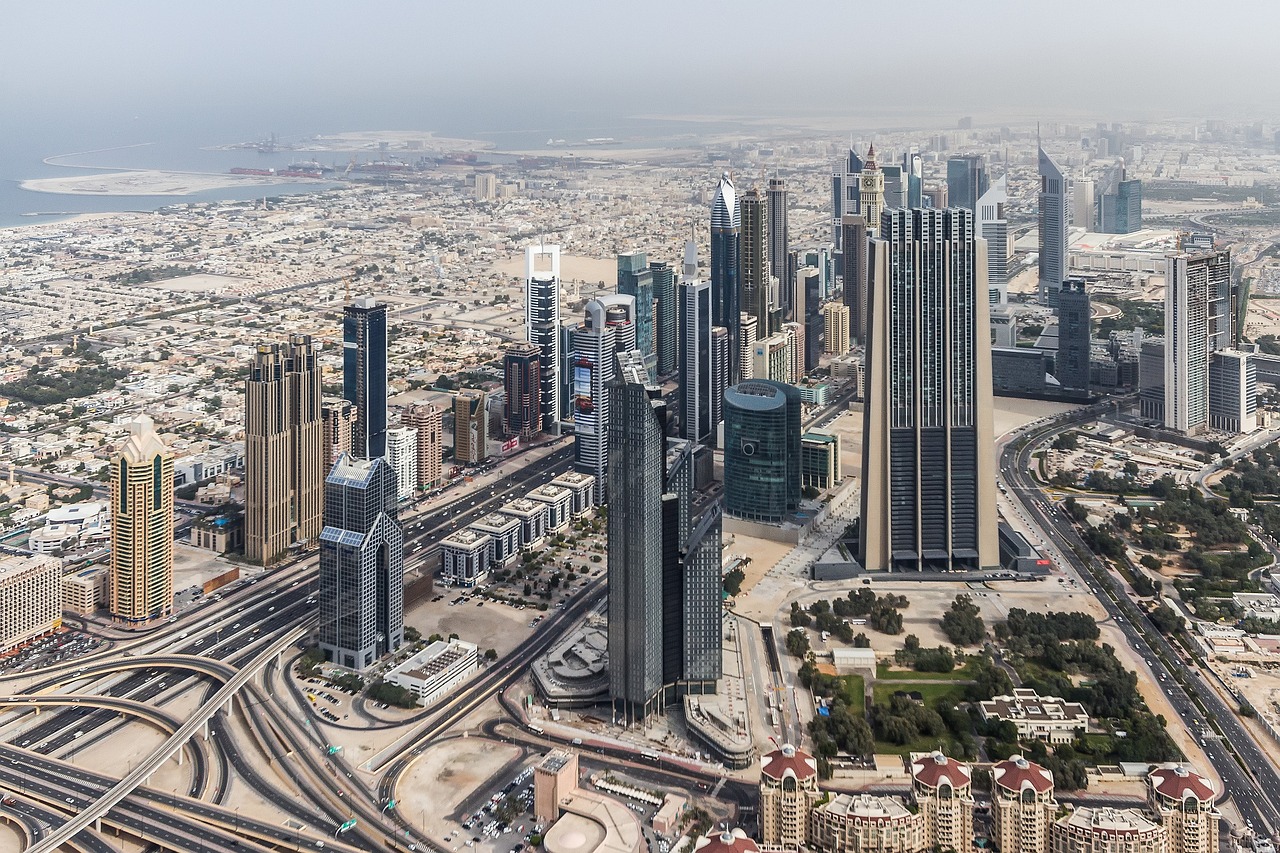Over the last few years, the Middle East has rapidly emerged as a vibrant hub for the cloud and data center industry, and the United Arab Emirates (UAE) is one of the brightest jewels in its crown. No wonder global tech giants like Amazon Web Services (AWS), Google, Microsoft and many others are flocking to the region to set up huge world-class facilities.
But to understand what makes the UAE so special, let us first understand the factors favouring the growth of the industry in the wider Middle East region.
What is causing the data center boom in the Middle East?
The Middle East is home to over 300 million people. It is also a thriving nerve center of international business and trade. With a growth in population, the consumption of data and digital services is also growing. Local governments are also instituting policies that encourage the growth of the industry.
According to a report by Jones Lang LaSalle (JLL), “The favourable government policies in several countries in the region – including the provision of special economic zones, tax incentives and infrastructure development, which indicate a supportive ecosystem for a thriving data centre market. This is, therefore, encouraging more data centre operators to start investing in the region.”
The data center industry is thus thriving in the Bahrain, Kingdom of Saudi Arabia (KSA), Kuwait, Oman, Qatar, and the UAE.
Mordor Intelligence estimates the data center industry in the Middle East to grow at a Compounded Average Growth Rate (CAGR) of 14.74 per cent and reach a total capacity of 2059 MW by 2029. Data centers having a capacity of over 460 MW are already live, and infrastructure to support an equivalent capacity is already under construction.
The region has access to as many as 45 submarine cables, and is also betting big on its abundance of solar energy to power its datacenters in a sustainable manner.
The data center boom is also fuelled by the developments in technologies like Artificial Intelligence (AI), Machine Learning (ML), and Internet of Things (IoT).
“We believe the industry is on the precipice of major transformation given the rise of AI technology,” says Mohammed Samara, Regional Sales Manager-MENA, for PermAlert, that manufactures a state-of-the-art liquid leak detection system that aims to make data centers safer and more sustainable.
Sectors such as banking, financial services, e-governance, e-commerce, manufacturing etc. are increasingly relying on these technologies to optimize their processes, decrease downtime, and improve productivity. This has, in turn, led to greater need for cloud and data center services.
According to Adam Docrat, Head of Information Technology, Aster Retail GCC, colocation facilities have also played a huge role in the growth of the industry. He explains, “Colocation facilities have made it easier and more affordable for businesses in the Middle East to adopt cloud computing and other digital technologies by offering scalability, reliability, and security.”

Why is the UAE becoming such a huge data center hub?
This brings us to Dubai, that has become a hub of sorts for colocation facilities. According to a report by Agility Logistics Parks (ALP), the leading private owner and developer of industrial real estate in the Middle East & Africa, UAE’s colocation data center capacity stood at 164 MW in 2022-23.
Big regional players like Khazna Data Centers, Moro Hub, Gulf Data Hub, etc. running world class facilities here alongside other international players like CtrlS, Equinix, etc. This is playing a huge role in the growth of the data center industry in the region.
Traditionally, the UAE has always attracted global interest and investments. Today, it is rapidly building and upgrading its world class infrastructure. The UAE is home to close to two dozen data centers, and over 200 cloud service providers. Arizton Advisory & Intelligence valued the size of UAE’s data center market at US$ 1.25 billion in 2022. They predict it will reach US$ 1.91 billion by 2028.
Dubai already has a reputation as a tech savvy international city, and other hubs are emerging in Abu Dabhi and even Al Ain.
According to Stephen Beard, Global Head of Data Centers, Knight Frank, “An increase in the population as well as the GDP (Gross Domestic Product) means that the UAE data center story has only begun. Huge populations, sub-sea cable concentrations, political and economic stability, a significant rise in internet penetration, potential to migrate to greener power… that’s where you place your chips!”
The government of UAE has also shown genuine and sustained commitment towards making the region a preferred destination for international players who want to set up their facilities here. The Dubai Energy and Water Authority (DEWA) runs one of the largest data centers here. This Moro Hub facility runs entirely on solar power and is located at the Mohammed bin Rashid Al Maktoum Solar Park. Even the police rely on data centers to serve the common man.
Lt.Colonel. Dr.Hamad Khalifa Al Nuaimi, Head of Telecommunication, Infrastructure Department, ICT Center, Abu Dhabi Police GHQ, says, “The new way of doing police works has been enhanced into more digitalization, and involves more technologies, further improving security and safety for the country and the communities. So, Cloud technology would be one of the accelerators for this new generation.”
Docrat says, “The outlook for the data center industry in Dubai, and the wider Middle East region will only grow as companies increase their adoption into cloud computing and digital technology.”
“In the Dubai and wider Middle East region, we expect a growing demand for data centres because of the increased digitalization and increasing data storage needs,” says Sathya Sivaramakrishnan, Regional Manager – Southwest Asia & Middle East, for Starline, a power distribution major in the region.

Some challenges remain
Data centers consume a lot of power, not just for operating the equipment, but also for proper air conditioning to prevent over-heating. But despite efforts to switch to more climate friendly energy sources, fossil fuels are still used widely.
But Stephen Beard reminds, “Europe was no different when it started its data center journey 20-years ago.” He asserts, “Yes, we have some catching up to do but crucially, the capital and appetite to do is here!”
The other challenge pertains to a shortage of skilled labour. There are few technical universities in the region. “There is a shortage of skilled workers in the cloud and data center industry. This is making it difficult for businesses to find the qualified staff they need to manage and operate their cloud and data center infrastructure,” says Docrat.
While the UAE, and especially Dubai, attract a lot of migrant labour, in the long run they would also have to invest in skill-building to ensure that the burgeoning data center industry continues to thrive.


